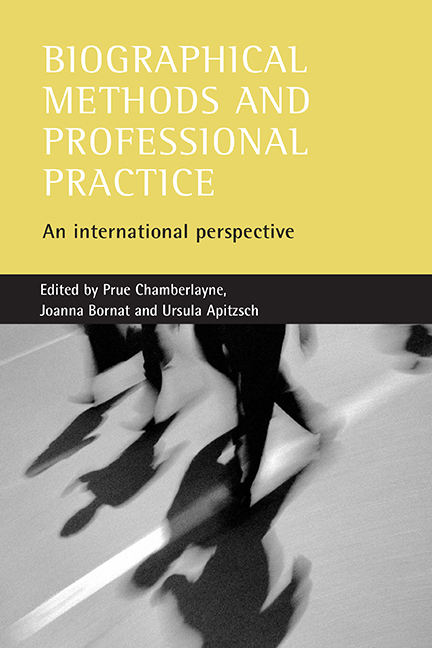Book contents
- Frontmatter
- Contents
- Notes on contributors
- one Introduction
- Part One Putting the subject into policy and practice
- Part Two Subjectivity in context
- Part Three Self-awareness in research and practice
- Part Four Recognising trajectories of disempowerment
- Part Five Biographical resources in education and training
- Index
fifteen - Biography as empowering practice: lessons from research
Published online by Cambridge University Press: 20 January 2022
- Frontmatter
- Contents
- Notes on contributors
- one Introduction
- Part One Putting the subject into policy and practice
- Part Two Subjectivity in context
- Part Three Self-awareness in research and practice
- Part Four Recognising trajectories of disempowerment
- Part Five Biographical resources in education and training
- Index
Summary
The use of biography and autobiography today, compared with only 20 years ago in the UK, is now ubiquitous in work with vulnerable people in care settings. Biographical materials exist implicitly and explicitly in a variety of forms, from documents (such as case notes, patient histories, and care plans) to more journalistic public accounts in the media following instances of abuse or fatal accident, as well as in service users’ own accounts often presented in the form of life storybooks, or audiovisual recordings. The use of autobiography and biography has also become a common research tool in health and social care settings in the form of life stories and histories, oral history, narrative studies, and biographical interpretive methods. Collectively, these have come to be known as ‘biographical methods’ (Bornat, 1994; Walmsley, 1995; Chamberlayne et al, 2000, Bornat, 2001; Bornat, 2002; Coleman, 2002; Webster and Haight, 2002).
In tandem with this shift towards a more subjectively understood idea of care has been the claim by some authors, though not all, that such approaches empower participants, enabling them to take control of their own stories, to reverse roles with researchers, to claim ownership, to retain the right to interpret rather than allow the ‘academic gaze’ to take over, and even to bring about change in the direction of their lives (Bornat, 1989; Frisch, 1990; Booth and Booth, 1998; Hirsch, 1998; Thompson, 2000). Whether or not any of these empowering outcomes is measurable or achievable remains a focus for constant debate.
In this chapter, we make our own contribution, exploring ways of positioning biographical research and practice on a top-down/bottom-up matrix. In so doing, we arrive at a more questioning appraisal of claims for empowerment through biographical work. Questioning, but not necessarily being judgemental. It is not our intention to recommend or suggest that any one positioning on the matrix is more or less desirable than any other. In what follows, we offer a matrix as a form of self-evaluation and reflection on research processes. In doing so, we consider such issues as ownership, power in research relationships, presentation, structure and process.
- Type
- Chapter
- Information
- Biographical Methods and Professional PracticeAn International Perspective, pp. 221 - 236Publisher: Bristol University PressPrint publication year: 2004
- 1
- Cited by



